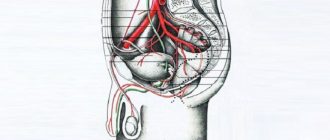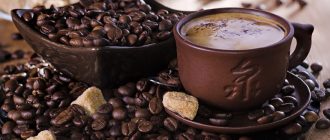A diet for prostatitis is aimed at normalizing the functioning of the body and involves eliminating foods that irritate the prostate gland. You should follow all the recommendations, increase the amount of healthy foods and exclude harmful ones from your diet. No less important is that the diet must be followed for a long time, because otherwise it will not give a positive effect.
Basic principles of nutrition
Proper nutrition for chronic prostatitis or exacerbation of prostate inflammation, along with taking antibiotics and physiotherapy, is one of the necessary measures to treat the disease. The diet is based on the principles of rational nutrition, which includes:
- Harmful foods for prostatitis are minimized or completely eliminated from the diet.
- Increasing the amount of plant foods.
- Including fiber-rich foods in your diet is quickly absorbed and does not lead to excessive gas formation, eliminating constipation.
- The menu should include the widest possible range of products. This will help to obtain a large amount of useful substances and vitamins from it; in addition, the patient will not suffer from the difficulty of following a diet and monotony of food.
- You should avoid overeating and eat small meals, 4-5 times a day every 3-4 hours. You need to eat at the same time.
In addition to these rules of rational nutrition, one should take into account features directly related to the disease:
- with acute prostatitis, libido decreases. By increasing seafood and some other foods in your diet, this can be avoided;
- The basis of the diet is vegetables. Some are recommended to be consumed after cooking, and some – raw, in the form of salads;
- Polyunsaturated fatty acids and antioxidants will also be beneficial;
- food for prostatitis should contain zinc and selenium - these are the main substances for the normal functioning of the prostate;
- It is allowed to consume a limited amount of dietary meat and fish. You should not consume more than 150 g per day;
- the diet should include low-fat fermented milk products;
- Food for prostatitis is prepared boiled, baked, steamed or stewed, and frying should be avoided;
- soups are prepared without the use of fatty meat broth and frying; only non-concentrated fish broth is allowed;
- Fatty foods and increased weight during prostate inflammation contribute to the development of the disease and other complications, so high-calorie foods are excluded, and the total energy value should not exceed 2500 kcal per day;
- the use of salt and spices is limited. You should use no more than 8 g of salt per day (1 level teaspoon);
- sweet foods are also excluded; as desserts you should eat fruits or fruit salads, purees and jelly;
- Nutrition for prostatitis is supplemented by taking vitamin complexes containing vitamins A, E, K.
During exacerbation of chronic prostatitis, it is also recommended to maintain a drinking regime. You need to drink about 3 liters of pure or mineral still water per day. Green tea and freshly squeezed vegetable and fruit juices are also very useful; fermented milk drinks, herbal teas, lingonberry, rose hip and cranberry decoctions are allowed. Strong tea, coffee and alcohol are prohibited.
If you have prostatitis, you must follow the diet for at least a month. It is advisable to continue to use its basic principles.
Healthy foods
Useful foods for the prostate gland:
- Meat – when treating prostatitis, you can eat chicken, rabbit, and lean parts of beef.
- Fruits must be included in the diet, because they are a source of vitamins, antioxidants and pectin, which are useful for this disease. You need to eat: grapefruit, oranges, apricots, bananas, watermelons, avocados, apples, plums, melons, pineapples, dates, strawberries, berries. You can also consume different types of dried fruits.
- Vegetables are the most useful foods for prostatitis, recommended: tomatoes and cucumbers, spinach and lettuce, eggplant and zucchini, cabbage (Brussels sprouts and cauliflower are especially useful), carrots and beets, greens.
- It is good for the prostate and potency to eat dietary seafood - tuna and other low-fat fish, shrimp, mussels, algae, oysters, fish roe and milk (not salted).
- Flour products: a small amount of durum wheat pasta and bran bread are allowed.
- Fermented milk products - kefir, cottage cheese, cheese, yogurt.
- Whole grain cereals - buckwheat, barley, oats (not flakes).
- Vegetable oils: flaxseed, corn, olive, sesame.
- Drinks – for prostatitis, you can drink green tea, compotes, fruit drinks, decoctions of herbs and berries, freshly squeezed vegetable and fruit juices (not packaged, because they have a high sugar content, contain preservatives, dyes and flavors).
- Coriander, turmeric and mustard are considered beneficial, but you should not use these spices in large quantities.
Products for the prevention of prostatitis in men:
- pumpkin and its seeds (seeds should be consumed raw or lightly fried);
- walnuts and almonds;
- seafood, especially mussels and oysters;
- greenery;
- onion and garlic.
Prohibited Products
Products prohibited for prostatitis:
- foods that provoke prostate pain: fatty, salty, spicy and spicy foods;
- dishes prepared by frying in oil;
- It is forbidden to use sauces, except for a small amount of soy sauce;
- if you have prostatitis, you should not drink or eat products containing flavorings, dyes and preservatives;
- It is recommended to consume a minimum amount of dairy products. Milk, sour cream and cheese contain a lot of fat;
- you need to give up any pickled and smoked products;
- semi-finished products and sausages are also unacceptable;
- if you have prostatitis, you should not eat foods high in sugar and chocolate;
- The consumption of coffee and alcohol, carbonated and sweet drinks is contraindicated.
Sample menu for the week
A diet menu for prostatitis may look like this:
- Monday. Breakfast - oatmeal. Afternoon snack – soft cheesecakes with raisins. Lunch – beetroot soup. Dinner – vegetable puree.
- Tuesday. Breakfast – buckwheat porridge. Afternoon snack – fruit puree. Lunch – soup with chicken and vegetables (not broth). Dinner - stew.
- Wednesday. Breakfast - pasta and vegetable juice. Afternoon snack – cottage cheese with dried fruits. Lunch – borscht in vegetable broth. Dinner – baked rabbit meat.
- Thursday. Breakfast - vegetable cutlets. Afternoon snack – fruit drink with grain bread. Lunch – vegetable puree soup. Dinner – rice with chicken.
- Friday. Breakfast - boiled eggs. Afternoon snack – green tea and fruit. Lunch – onion soup. Dinner – fish cutlets.
- Saturday. Breakfast – pancakes with cottage cheese. Afternoon snack – barley porridge. Lunch – cabbage soup made from fresh cabbage. Dinner – rice with seafood.
- Sunday. Breakfast – carrot salad. Afternoon snack – fruit salad. Lunch – low-fat fish soup. Dinner – baked chicken and kefir.
Additionally, you can drink green tea and fruit between meals or for dessert. Also, some dishes can be replaced, for example, alternating types of fish, eating oysters and mussels if possible, making fruit salads with different combinations of fruits and vegetables, using different oils for dressing them.
Considering that the diet must be followed for a long period of time, the menu should not cause discomfort or bore the patient.



